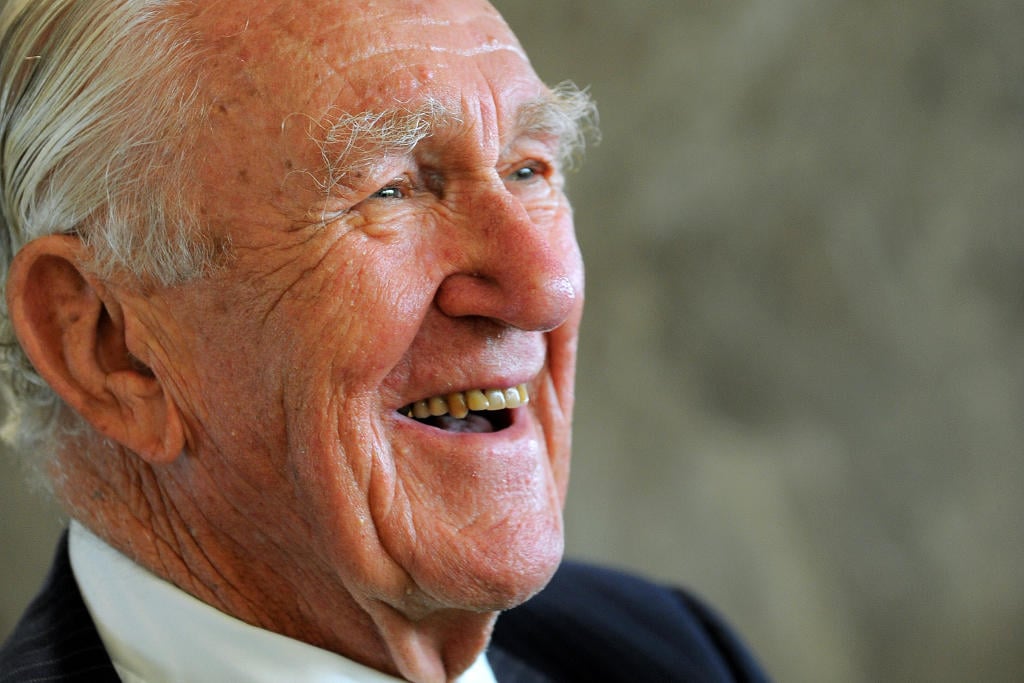Remembering Malcolm Fraser: Our Last Great Intellectual Prime Minister
We may never see his like again: a man who genuinely believed that politics was a tool to improve the lives of all people, not just an electorally-convenient handful.

The legacy of our 22nd Prime Minister will always be overshadowed by the circumstances under which it began: the controversial removal of Gough Whitlam’s Labor government by Governor General John Kerr in 1975. It was a piece of political manoeuvring that saw the Coalition government installed in a landslide victory never seen before or since, but the circumstances cast a shadow over many of his most notable subsequent achievements.
Fraser may have been a dyed in the wool conservative, yet he opened Australia up to the world like no Liberal leader before him. Yes, he was an avowed anti-Communist and supported the war in Vietnam, but he was far more complicated a figure than those facts would suggest.
He opposed the growing neo-liberal movement that saw Margaret Thatcher and Ronald Reagan sweep to power in the UK and US, considering it small-minded and ungenerous. Even so, the pressure he put on western leaders in the early ’80s to refuse recognition to of the Zimbabwe Rhodesia Government was instrumental in bringing about the end of Apartheid in South Africa.
He supported indigenous reconciliation and expanded refugee migration (two areas where he and Whitlam found common cause even at their most adversarial), founded SBS, oversaw the creation of the Australian Federal Police, and guided the Northern Territory to self-governance, as well as declaring the Great Barrier Reef a protected marine park. While Whitlam dismantled White Australia as policy, it was under Fraser that Australia’s immigration policies became multiracial.
He was always a fierce and outspoken opponent of racism and never shied away from combating it, personally and institutionally – to the point of drawing the ire of Liberal leader Robert Menzies for his outspoken opposition to Apartheid and White Australia policy in the ’60s. That probably contributed to his remaining on the backbench until Harold Holt promoted him to his first ministerial position in 1966, as Minister for the Army.
He and his wife Tammy fostered children all their lives, including during the Prime Ministership, and his life after the Lodge was conspicuously public (not least when he drunkenly lost his trousers in a seedy motel in Memphis in 1986).
His work for the disadvantaged continued as president of Care International, worked with the United Nations over political and commercial activities in Africa. And as Australia became less welcoming in the ‘90s under his former treasurer John Howard, Fraser became more outspoken.
He was an early and vocal critic of the racist policies of Pauline Hanson and One Nation, decried the Howard government’s policies on offshore detention, campaigned with Whitlam for an Australian republic, and began criticising Australia’s military dependence on the US – which became the subject of his final book, Dangerous Allies. He was also the only former Liberal leader to attend Kevin Rudd’s Apology to the Stolen Generations.
It’s hardly a surprise that by that stage he was persona non grata in his own party, with the likes of Sophie Mirabella hysterically claiming he was, among other things, a supporter of Islamic fundamentalism. He finally resigned in disgust from the Liberal Party when Tony Abbott was elected leader in 2009.
(Predictably, Abbott’s eulogy to the man was as perfunctory as possible without being openly insulting, all but ignoring the man’s life and work after being removed from power.)
He was also perhaps the last great intellectual leader this country has had. He was a well-educated man who read widely and thought deeply, and wasn’t afraid to change his mind and admit when he had been wrong (as with the Vietnam War) – a welcome and unusual quality in a world where changing one’s political opinion has become anathema.
I had the great pleasure of interviewing him in 2014 and found him marvellously articulate, peppering our conversation with witty asides and Shakespearean allusions, and deeply passionate on the subject of Australia’s destiny, and where he felt we were missing the chance to make things better for Australians, the Asia-Pacific region and the world in general.
We may never see his like again, certainly on the conservative side of Australian politics: a man who genuinely believed that politics was a tool to improve the lives of all people, not just an electorally-convenient handful.
Unsurprisingly perhaps, Paul Keating put it best. “I always thought that Malcolm would be around a lot longer,” he said in his tribute. “I must say, I wished he had been.”
–
Andrew P Street is a Sydney-based journalist, editor, critic and columnist, who writes regularly for The Sydney Morning Herald and Time Out. He tweets from @AndrewPStreet
Feature image by William West for AFP, 2014, via Getty